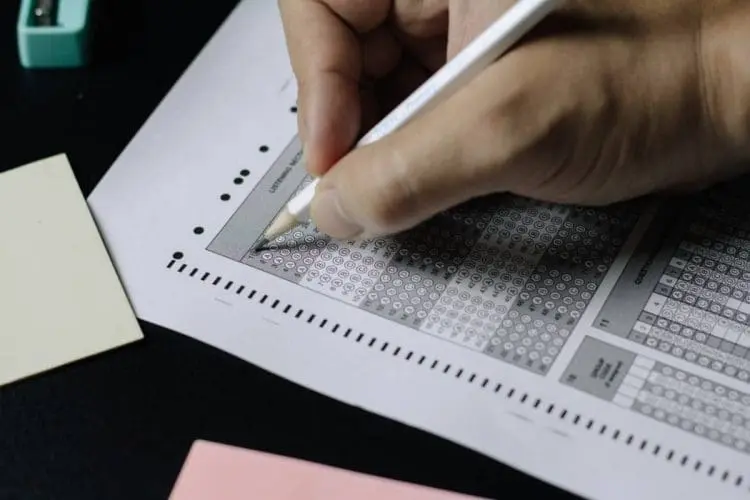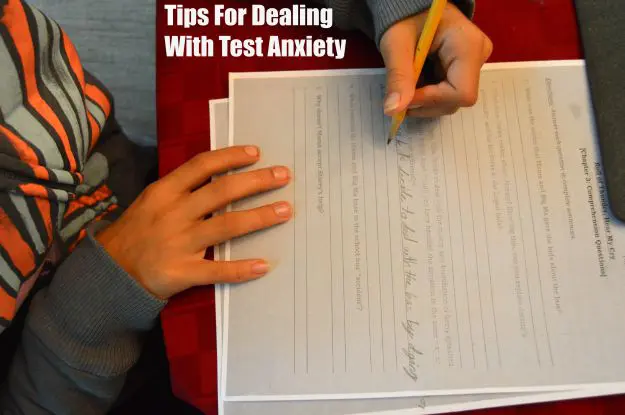Have you ever felt your heart race and your palms sweat at the mere thought of an upcoming test? If so, you’re not alone. Test anxiety is a common obstacle that can hinder students from unleashing their full potential. In this article, we will delve into the world of test anxiety and equip you with powerful techniques and practical tips to overcome it. We will explore the impact of test anxiety, identify its root causes, and develop effective coping test anxiety strategies. You can help your child unlock their full potential by utilizing mindfulness and relaxation techniques. Kids can learn to prepare both physically and mentally for tests, and ultimately take control and thrive in test situations.

Understanding the Impact of Test Anxiety
Test anxiety is not just a simple case of nerves or jitters; it can have profound effects on academic performance, self-confidence, and overall well-being. One of the most significant impacts of test anxiety is its ability to impair cognitive functioning. When students are in a state of anxiety, their brains can enter a fight-or-flight response, triggering the release of stress hormones like cortisol. This physiological response can hinder the ability to concentrate, remember information, and think critically during a test. The resulting mental fog can make even the most well-prepared student struggle to recall key facts or perform to their full potential.
Identifying the Root Causes of Test Anxiety
Test anxiety is a complex phenomenon that can stem from a variety of underlying factors. While some individuals may experience anxiety solely related to fear of failure or perfectionism, there are often deeper root causes at play. By exploring and understanding these root causes, we can gain valuable insights into test anxiety and develop targeted strategies to overcome it.
One prominent root cause of test anxiety is a lack of confidence in one’s abilities. Many students who experience test anxiety have feelings of self-doubt and a belief that they are not capable of performing well in exams. This lack of confidence may stem from past negative experiences, comparison to others, or even societal pressure to achieve certain academic standards. Recognizing this lack of confidence as a root cause allows us to address it head-on and work towards building a more positive and empowering mindset.
Another common root cause of test anxiety is poor preparation. When students feel unprepared for an exam, anxiety naturally arises as they worry about the consequences of not knowing the material. This can be a result of ineffective study habits, procrastination, or a lack of understanding regarding the exam format and content. By acknowledging poor preparation as a root cause, we can implement strategies such as effective study techniques, time management, and seeking clarification from teachers to better equip ourselves for success.
Furthermore, external pressures can play a significant role in test anxiety. High expectations from parents, teachers, and peers can create immense stress and lead to feelings of being overwhelmed. Recognizing these external pressures as a root cause of test anxiety allows us to seek support, communicate our needs, and set realistic expectations for ourselves based on our own abilities and goals.
Test Anxiety Strategies
As first quarter of school approaches across the country, many students feel the stress of term papers, projects, exams, and standardized tests. Developing healthy and efficient strategies for homework and studying are essential for stress management and school success. Here are some expert test-taking strategies to help students and parents manage from expert, Laura Paret PhD, Child and Adolescent Psychologist. Here are three effective test anxiety tips.
Make a testing plan
Many people, students and parents alike, are fond of making to-do lists. Making a proper plan can help both concentration and productivity. Break tasks or study materials into manageable sections, with time estimates of how long each task will take. Compare you or your child’s time estimate with how long the task actually took for better planning in the future. Work in blocks of time (15 minutes, 30 minutes, 45 minutes) and allow yourself or child 5-10 minutes to completely break when the timer goes off. Note that getting up and moving, listening to a song, or grabbing a glass of water all might be more helpful and restorative than screen time!
Thoroughly preparing for the exam is one of the most effective ways to reduce anxiety. Knowing the material well can boost confidence and reduce the fear of the unknown. Familiarize yourself with test formats and develop strategies for answering different types of questions. This can increase your confidence during the actual exam. Plan your study time effectively and avoid cramming. Spreading out your study sessions over time can help you retain information better and reduce stress.
Build mental toughness with self-talk and relaxation techniques
Study in an optimal environment, whether that’s alone and in silence, with loud music, or with a tutor or peer. Use the external environment that works best for you or your child to stay focused. Take deep breaths and use positive self-talk to clear any negative thoughts. Internally, determine what kind of coping talk helps you or your child the most, e.g., “You can get through this,” or “You’ve been this stressed before and the test went fine.” Reminders of core strengths (e.g., honesty, humor, or friendliness) can also help you or your child to feel more grounded and confident in the face of academic pressure.
Furthermore, relaxation techniques, such as abdominal breathing, visual imagery and progressive muscle relaxation strategies, are your friend! These are techniques that you or your child can use to combat physical sensations of anxiety or stress. Figure out which one works best to soothe discomfort and practice it 3-5 times a day so that you or your child are ready to use this skill to calm down when needed.
This site has a lot of great training videos and audio clips to help you or your child to determine what works best for you. Practice, Practice, Practice!
Be mindful and compassionate towards yourself and others
Negative thinking is hard to challenge on test day, but remember that thoughts are just thoughts, not necessarily facts! Challenge doomsday thinking by noticing unhelpful thinking and offering compassion for yourself or your child’s experience. Pay attention to the difference between compassion and reassurance. Reassurance can sometimes come across as dismissive, e.g, “It will be fine,” in comparison to offering compassion for yourself or child, e.g., “Anyone would feel the way that you are feeling right now, but try not to be hard on yourself; you’re doing the best that you can given the circumstances.”
Taking Control and Thriving in Test Situations
Ensure you are getting enough sleep, eating well, and exercising regularly. Physical well-being can significantly impact mental well-being. By preparing both physically and mentally, we can enhance our ability to perform at our best in test-taking situations. These practices, when combined with the coping strategies and relaxation techniques we have previously discussed, provide a comprehensive approach to overcoming test anxiety. They create a solid foundation from which we can take control and thrive in test situations, ultimately unlocking our full potential.
Taking control and thriving in test situations involves a holistic approach that encompasses preparation, stress management, self-awareness, and maintaining a balanced perspective. By adopting these practices, we position ourselves for success and empower ourselves to excel not only in exams but also in our broader educational journey.
Conclusion
Overcoming test anxiety is a transformative journey that empowers you to unlock your full potential academically and beyond. By understanding the impact of test anxiety, identifying its root causes, developing effective coping strategies, utilizing mindfulness and relaxation techniques, and preparing physically and mentally for tests, you have the tools to take control and thrive in any test situation. Finally, don’t underestimate the importance of a good night’s sleep on your test performance.
Remember, this journey requires practice and patience, but the rewards are worth it. Don’t let test anxiety hold you back any longer – start implementing these strategies today and witness your academic and personal achievements soar. I hope you find these tips on how to coach your kid through test anxiety helpful. Have you tried any of these tips for overcoming test anxiety?Which tips for test anxiety are your favorite?
If these strategies do not seem to be working and dealing with anxiety is interfering with school performance, it can be helpful to consult a guidance counselor or psychologist. Keep in mind that approximately 10% of younger students experience clinically significant anxiety. Give these strategies a try. However, if you or your child are still struggling, don’t hesitate to search for additional help.
Related Posts:
Coping Skills For Stressed Parents


Ourfamilyworld says
These are very helpful test anxiety strategies and tips. Self talk and relaxation techniques really work for my son.
Dawn says
Ugh. This is a horrible type of performance anxiety and such a stressful situation. These tips for how to deal with test anxiety are great. A positive attitude and practice tests help with exam performance. I think everyone could use deep breathing exercises and physical activity on a daily basis.